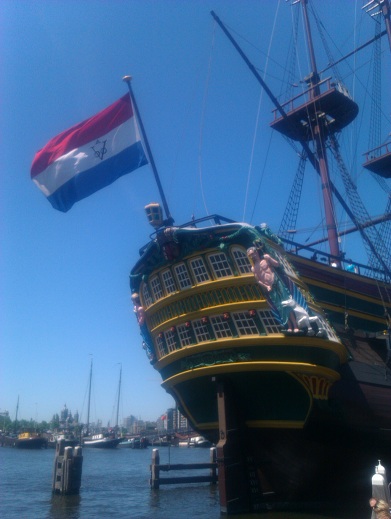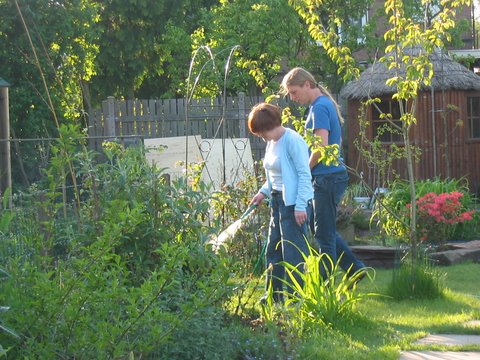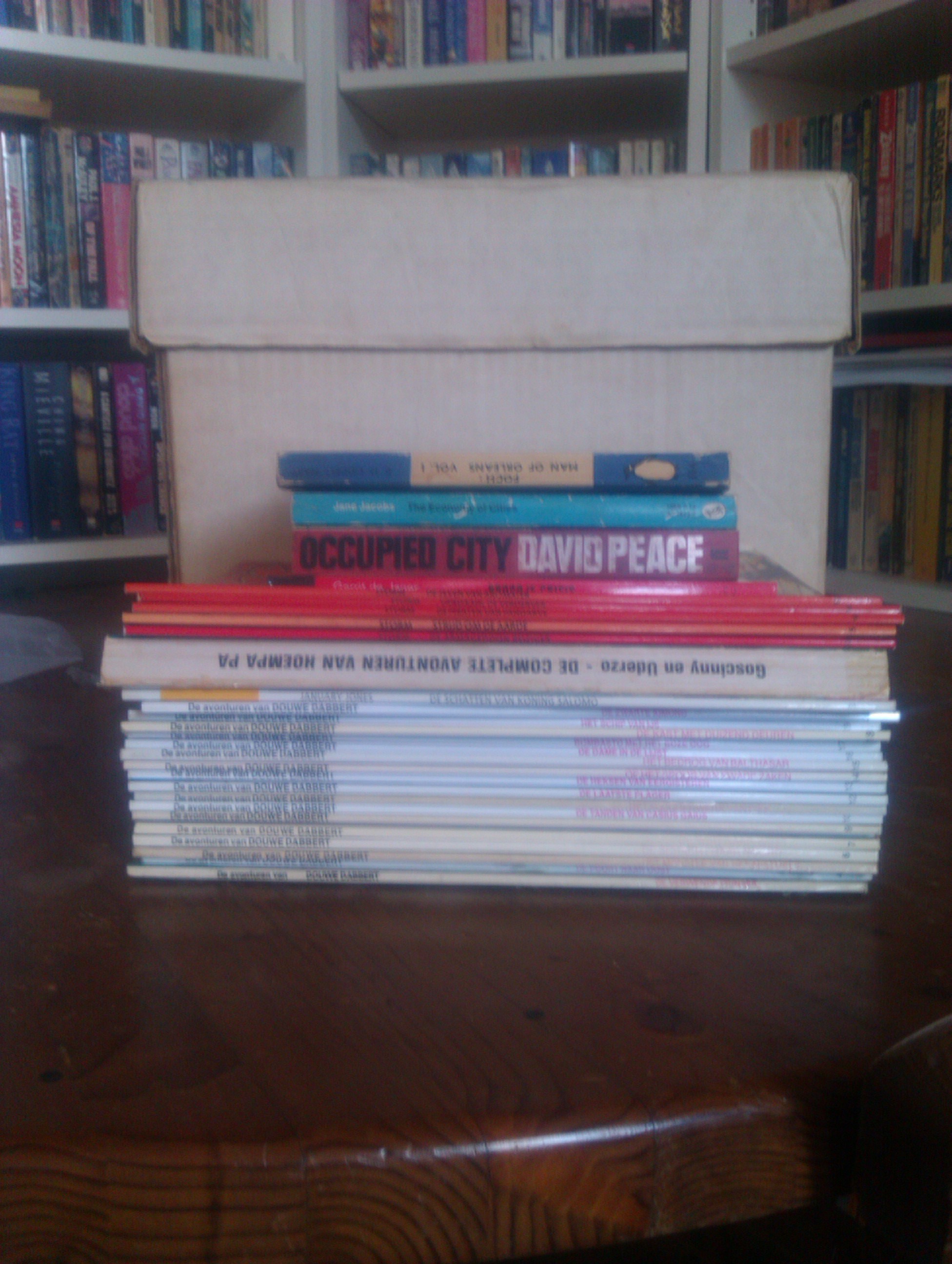As with last month, I didn’t read much in May, opting for reading two large, difficult(ish) books instead. Other interests also cut down on my reading time, so I’m nowhere near Michel’s output for the month.
The Children Star — Joan Slonczewski
An author I’ve heard a lot of the last year, due to her latest novel, The High Frontier. As James Nicoll has often said, in science fiction biology is the redheaded stepchild that comes to school covered in bruises; Slonczewski is one of the few sf writers who can create believable, workable alien biologies and her skill is on display here.
The End — Ian Kershaw
A history of the German experience in the last year of World War II , which tries to answer not why Germany lost, but why it took so long, until after Hitler’s death, to realise it had lost. Why did it keep fighting on for so long when it was clear in late 1944 that they couldn’t win?
Kamikaze: History’s Greatest Naval Disaster — James Delgado
A pop history look at the two attempted Mongolian invasions of Japan and why they failed. Interesting and I could do with a more indepth history to read about this. Any suggestions?
Divided Allegiance — Elizabeth Moon
The second book in The Deed of Paksenarrion sees Paks dissatisfied with life in the mercenary company she was in in the first book, leave and land herself in a very D&D-like dungeon crawl and hook up with the Fellowship of Gird as a paladin candidate. My copy annoyed me greatly as the cover was completely flaked away before I’d even finished reading it.
The Earth — Richard Fortey
Richard Fortey was Sandra’s favourite science/evolution/geology writer and geology being her favourite science. As far as I know she hadn’t read this particular book, but I bought it in honour of her memory. Fortey explains the geological processes that drive the Earth and the history of how we got to understand, through the process of visiting some of the “holy” places of geology, starting with its birthplace in the Bay of Naples at the Vesuvius.


